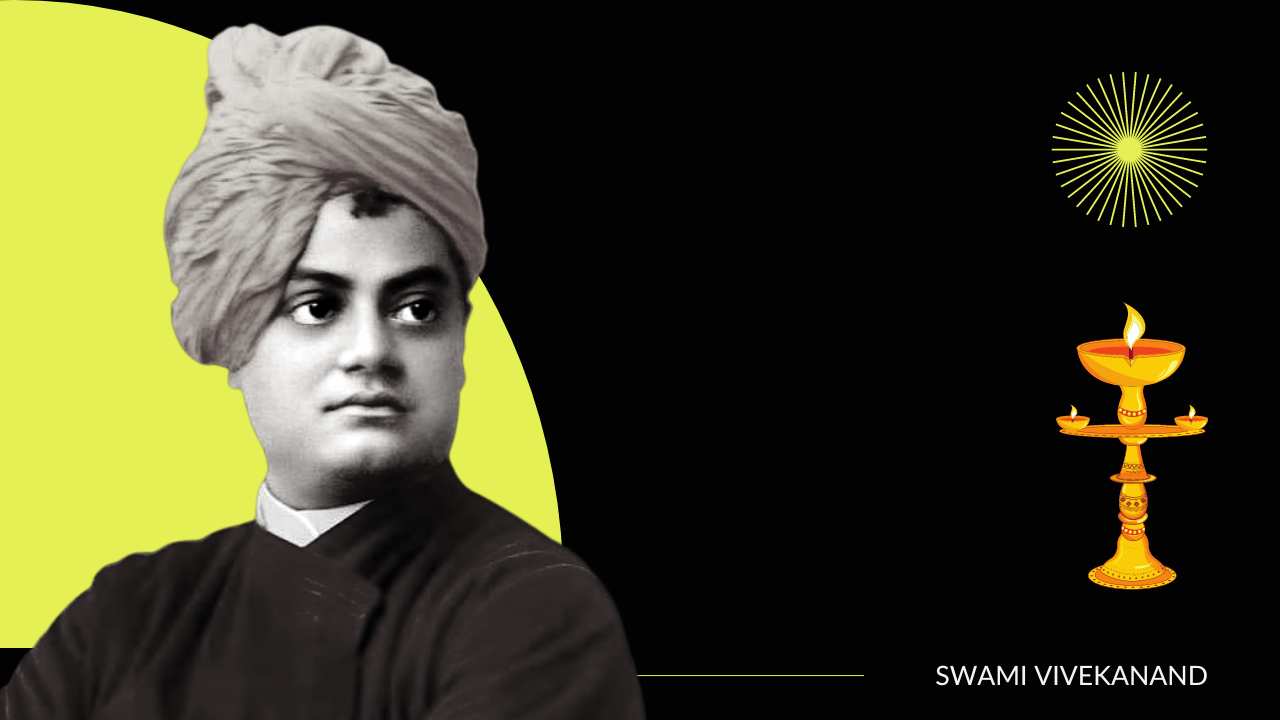India celebrates, National Youth Day 2023 on Jan. 12, marking the birth anniversary of Swami Vivekananda who continues to be a youth icon even today.
He spent only 39 years on this earth and died young but left played a crucial role in bringing Indian culture and traditions to the awareness of millions. Here we cover some key elements from his great journey.
Swami Vivekananda (1863-1902) was an Indian monk and spiritual leader who left a lasting impact on the world with his teachings and speeches. He was a key figure in introducing Vedanta and Yoga to the Western world and is widely credited with bringing Hinduism to the status of a major world religion.
Born as Narendranath Datta in Calcutta, India, he was drawn to spirituality from a young age. It was not until he met Indian mystic Ramakrishna that his life truly took a significant turn. He became a devoted disciple of Ramakrishna, taking the name Swami Vivekananda after his guru’s death.
Swami Vivekananda’s defining moment came at the Parliament of the World’s Religions in Chicago in 1893, when the world realized the impact of the ideas of a monk from India.
His electrifying curtain-raiser was a call for religious tolerance and understanding, in which he introduced Hinduism to the Western world and charmed the audience with his powerful oratory skills, which were often compared to those of the great Abraham Lincoln.
He was instrumental in bringing the spiritual heritage of India to the attention of the Western world.
Following his thriving introduction at the Parliament of the World’s Religions, Swami Vivekananda embarked on a journey of disseminating the core principles of Hindu philosophy.
He delivered numerous speeches and lectures in the United States, England, and Europe, sharing his wisdom and knowledge. He was also the founder of two significant organizations – the Vedanta Society of New York and the Vedanta Society of San Francisco (now known as the Vedanta Society of Northern California).
These organizations played a vital role in establishing Vedanta Societies in the West
Swami Vivekananda’s influence goes beyond his lifetime, his ideas and thoughts continue to inspire people today.
He emphasized universal acceptance, religious tolerance, and service to mankind. Even after his passing at the young age of 39, his legacy lives on through his teachings and the organizations he founded.
His books such as ‘Jnana Yoga’, ‘Bhakti Yoga’, and ‘Karma Yoga’ are considered spiritual classics today. Swami Vivekananda’s life and teachings continue to be a source of inspiration and guidance for many people all over the world.
- Swami Vivekananda was born Narendra Nath Datta in an aristocratic Bengali Kayastha family in Calcutta. He was the youngest of eight siblings.
- From a young age, Narendra was drawn to spirituality and was particularly influenced by the teachings of Sri Ramakrishna, whom he met when he was 20 years old. He became a devoted disciple of Ramakrishna and, after his guru’s death, took the name Swami Vivekananda.
- Swami Vivekananda was one of the key figures in the introduction of the Indian philosophies of Vedanta and Yoga to the Western world. His speeches, particularly at the Parliament of the World’s Religions, were instrumental in bringing the spiritual heritage of India to the attention of the Western world.
- Swami Vivekananda was a strong advocate of religious tolerance and understanding. He believed that all religions were different paths to the same goal, and he encouraged people to respect and learn from the spiritual traditions of others.
- Swami Vivekananda was a gifted orator and his speeches were often compared to those of Abraham Lincoln. He was known for his powerful and persuasive speaking style, and his speeches were widely reported in the press.
- After the Parliament of the World’s Religions, Swami Vivekananda traveled throughout the United States, giving speeches and lectures, meeting with influential figures, and establishing the Vedanta Society. He also traveled to England, France, and Germany, where he continued to promote the teachings of Vedanta and Yoga.
- Swami Vivekananda returned to India in 1897 and worked to improve the lives of the poor and downtrodden. He established the Ramakrishna Mission to provide education, healthcare, and disaster relief to people in need.
- Swami Vivekananda passed away at the age of 39, on July 4, 1902. But his legacy of promoting spiritual wisdom, religious harmony, and service to mankind continues to inspire many people worldwide.
- He wrote books of his own experience, which are considered spiritual classics today, like Jnana Yoga, Bhakti Yoga, and Karma Yoga.
- National Youth Day (also known as Yuva Diwas or Swami Vivekananda Jayanti) is an annual event celebrated on January 12th in India to mark the birth anniversary of the great Indian monk
- On this day, various programs and activities are organized across the country to honor the teachings and legacy of Swami Vivekananda, who is considered a role model for the youth of India.
Swami Vivekananda’s life and teachings continue to be an inspiration to many people around the world. His emphasis on religious tolerance, understanding, compassion, and service to mankind continues to be of relevance and importance today.



